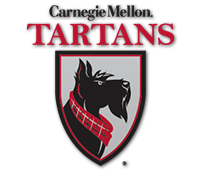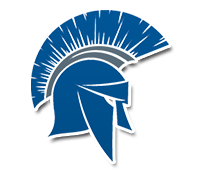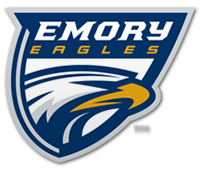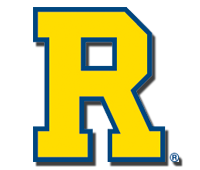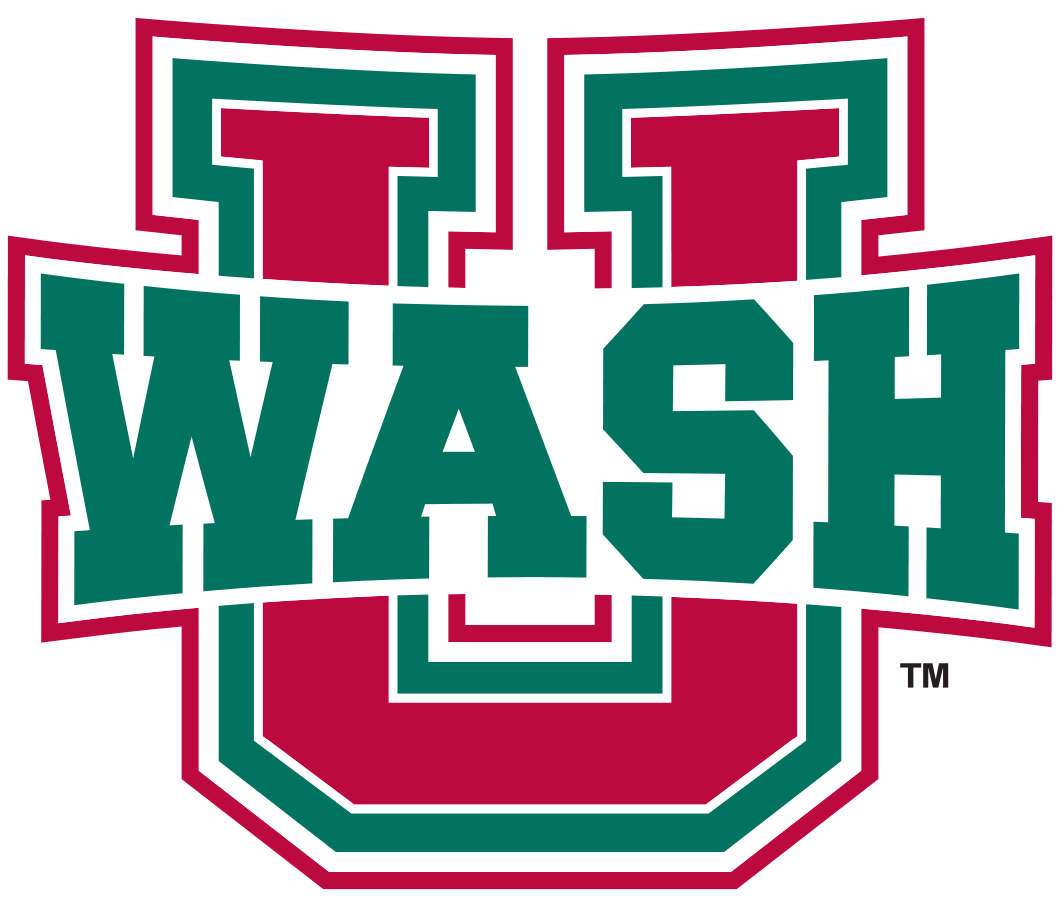
Three-time UAA Women's Tennis Most Valuable Player Gabrielle Clark made her mark not just at Emory University, but also in NCAA history as the first African-American woman to win an NCAA singles title.
Clark reached the NCAA Division III Women's Tennis Championship singles quarterfinal round in all four years from 2011-2014, capturing the national title as a sophomore in 2012 and in her senior campaign in 2014. In addition, she reached the doubles semifinals four consecutive times with four different partners.
"When she competed, her desire was so intense that it could intimidate opponents," recalled Emory head coach Amy Bryant. "There was an almost palpable pride in who she was, and the team she represented. Perhaps most remarkable was Gabbie’s sincere recognition that her collegiate career was relatively short. She believed it was a privilege to work hard and she refused to waste her time with lackluster effort. Focusing on the process is where she truly was at her best. I’ve seen so many players focus on “winning” rather than staying engaged in the process. Gabbie thrived by staying in the moment and relentlessly pursuing her goals."
She began her UAA career in style, earning both Most Valuable Player and Rookie of the Year honors, as she helped the Eagles regain the Association title after not winning the championship for the first time in UAA history the previous season. It was also the last time the championship was hosted at a UAA city before moving to its current site in Altamonte Springs, Florida. "I liked being in St. Louis my freshman year, but I definitely enjoyed playing the tournament in Florida more," she laughed. "I always enjoyed playing in the UAA tournament because it was the last tournament and the last matches before nationals."
In 2011, she reached the NCAA quarterfinal round in singles and teamed with Lorne McGanigle to advance to the national title match in doubles. "Playing in the NCAA tournament my freshman year was definitely a wake-up call," she recalled. "I never knew how exhausting playing the team, singles, and doubles tournaments would be. I realized that year at CMS (Claremont-Mudd-Scripps) how hard it is to go from playing with your teammates around you and the constant support to playing in the singles and doubles tournaments essentially by yourself and having to find motivation from within."

After her great success in her rookie season, Clark seemed poised for greater things in 2012. However, she did not feel like she was on the verge of making history as the national championship approached. "In my second NCAA tournament in North Carolina, I was less confident than I was the previous year," she remarked. "My regular season was not as successful as the prior year and I was seeded third after being seeded first the year before. Those doubts, along with less than ideal weather conditions, made me anxious about my performance."
The Eagles were also not coming into the NCAA championship on a high note after falling to University of Chicago in the UAA title match for the second time in three seasons. "The loss to UChicago was tough for the team, especially since (her doubles partner) Zahra Dawson full-body cramped in the deciding match."
In the NCAA singles tournament, Clark faced defending NCAA champion Kristin Lim of CMS in the semifinals. "I wasn't confident and Kristin had won the championship the previous year so I thought I was going to lose that match," she commented. "I lost the first set pretty quickly and was down 1-4 in the second set. I started to cry thinking about how disappointed I was in myself. I don't know what happened or what changed, but somehow I made a comeback and won that set in a tiebreaker and won the next set, 6-4."
After the match, she found out that her childhood tennis coach Troy Toole had called Clark's mother Violet to ask whether he should get on a flight to nationals or not. "I'm glad I ended up winning so he was able to see me play in the finals!" she stated.
Violet, a partner in the Chicago-based Laner Muchin Employment Law Firm who recently completed her term as president of the United States Tennis Association/Midwest Tennis & Educational Foundation, remembers the match and that phone call vividly.
“There were several other UAA student-athletes watching the match. The UAA family members were her biggest cheerleaders (and me of course!),” she recalled. “When I first started talking to Troy, he was on the way to the airport. At 1-4 in the second set, I told him maybe he didn’t need to keep going. He didn’t listen and kept pushing. (He was running late and there was a chance he would miss the flight anyway). When she brought the score to 3-4, he told me that she had this and that he was on his way.”
Toole had still not reached the airport when Clark won her second set so Violet kept him updated on the score. “They were on serve in the third set when he boarded the plane,” she continued. “At match point, they shut the door and I got to tell him that she won just before the flight attendants made him turn off the phone. He never doubted that she would win the match. Gabbie learned a lot of lessons from that match. We actually joke now that I speak in tennis analogies and the lessons learned from that match give me the most material.”
The final pitted Clark against Lok-Sze Leung of Middlebury College. "Going into the finals, even though I had lost to her twice and had never beaten her, my success in the semifinal match gave me the confidence I needed (and frankly didn't have at the beginning of the tournament) to win. My dream of becoming the first African-American woman to win a national (tennis) championship came true and I felt a weight lifted off my shoulders in that regard." Clark also reached the finals of the doubles draw, this time with Dawson.
The Eagles regained the UAA title in 2013 and reached the national championship match against Williams College, but Clark didn't believe she or the team accomplished what they could have. "The NCAA tournament in Kalamazoo was disappointing based on my standards for the team, singles and doubles," she said. Clark reached the singles semifinal and teamed with Annette Sullivan to advance to the doubles semifinal.
"The best part of that tournament was playing next to the captain and my good friend Jordan Wylie, who played number three singles in our quarterfinal match against Middlebury," she remembered. "It was a huge surprise because I expected to play next to our number two singles player, but the courts were staggered so 1, 3, and 5 singles played next to one another."
In Gabbie’s senior year, her teammates unanimously voted her captain. "Leading comes naturally to Gabbie as she automatically sets a good example with her everyday actions," Bryant remarked. "She operated under a strict moral and ethical code, which commanded respect from her teammates. She also had an uncanny ability to hold her teammates accountable when she knew they can do better. Gabbie was able to maintain friendships while encouraging her teammates to achieve greater heights; this is always a delicate balance when leading one's peers."
In her final trip to the UAA championship, Clark garnered her third Most Valuable Player award and second in a row in helping the Eagles win the Association title again. "It is an honor and a privilege to have been named MVP three times. I felt that performing well at UAAs was important so I could set the tone for the NCAA tournament," she said. "The three years I won MVP, I did a good job of doing that and motivating my teammates as we went through the tournament. I am proud of how I performed at UAAs and I carried my success there with me to nationals."
The 2014 NCAA Division III Women's Tennis Championship was a memorable one for Clark and the Eagles. "My final NCAA tournament was definitely the best one given that the team won and I won the singles title," she recalled. "We were happy to see Williams and Amherst play in the semifinals so that we would only see one of them (after playing both teams in each of the previous two NCAA tournaments). I was happy to finally get a team championship, which was always more important to me than an individual championship. Each year, I thought Emory was the most talented team at nationals, but didn't play well enough to win so it was refreshing to finally have something tangible to back up the claim that we were the best team."

"Winning the team tournament was a dream of hers since she set foot on campus as a freshman," Bryant said. "She selflessly pursued this goal for four years with an unwavering commitment, pouring her entire heart and soul into every minute on the court. I believe it is this passion and drive that sets Gabbie apart from other athletes."
She and Michelle Satterfield reached the NCAA doubles semifinal, capping off her run of four years to the semifinals with different partners. "It felt great to accomplish so much with four different doubles players," she said. "I think this ended up making me a more versatile player since I had to get accustomed to different doubles styles every season. Each year I was fortunate enough to play with the same doubles partner for the majority of the spring season and this allowed enough time to develop a strong relationship with each partner. Some of my closest friends on the team are people who I played doubles with and I think it is because of how much one-on-one time I spent with them. I just wish I would have been able to win an NCAA championship with one of them!"
"I can honestly say that Gabbie made me a better coach," Bryant said. "She reminded me to appreciate every opportunity and never waste a minute harping on what 'should or could be'. Rather, focus on 'every ball, every point,' and make the most of every situation. I attribute our team national championship to her ability to truly enjoy every moment of the journey leading up to the title match. And perhaps more importantly, she was able to motivate her teammates to do the same."
Although Clark did not win a doubles title at the NCAA championship, she did capture two ITA (Intercollegiate Tennis Association) Small College National Championship doubles titles. In 2011, she and Dawson captured the championship and then Clark swept the ITA titles in 2012, winning the singles title and teaming up with yet another partner, Emma Taylor, for the doubles crown.
“Being a student-athlete at Emory was an amazing experience. The athlete community was strong and supported throughout the university,” Clark stated. “Having teammates that were good at the sport was obviously important to me, but having teammates that were good well-rounded people made the experience that much better. My best memories come from being a two-sport athlete (she ran indoor track in the tennis offseason). Feeling a part of two different sports families at Emory was comforting and fun.”
In addition to balancing athletics and academics at Emory, Clark also committed to giving back to her community. She worked with Ngambika (a service/step organization), Crossroads (a mentoring program for students of diverse backgrounds), and every summer assisted with an inner-city tennis camp for at-risk youth in Chicago. In her junior year, she became very involved with Project Shine, a national organization that connects individuals with the refugee and immigrant populations in their communities. She volunteered weekly with the group and was a leader during her senior year, all the while recruiting others to join the cause.
"Clark, who is currently a senior financial analyst at McCann Worldgroup, continues to apply the lessons she learned at Emory. “Being a student-athlete has helped me in multiple ways in my career and personal life,” she relayed. “When I have a lot of work to get done in a short amount of time, I am more comfortable putting in the long hours to complete my work because I am accustomed to the pressure of late nights doing homework after various tennis matches and tournaments.”
One regret she does have is not attempting to play professional tennis. “I wish I would have tried playing some professional tournaments after my senior year,’ she said. “I felt like I was playing the best tennis I ever had and even though I am not optimistic about how successful I would have been, it would have been fun to end my career with that final push.”
“Gabbie has been lucky in that she has always been surrounded by people who believed in her more than she believed in herself,” said Violet, who will be inducted into the Chicago Tennis Hall of Fame on Feb. 18. “Being a Division III/UAA student-athlete helped her to gain confidence and bridge the divide between what others see and what she sees in herself.”
"Gabbie is the most passionate athlete I’ve ever coached," Bryant concluded. "She is a proven winner, someone who worked tirelessly and led others to increase their effort to get a job done. She relished every moment while staying focused on her goals. And, she simply was not deterred from putting in the work required to succeed. Her charismatic nature made her an incredible ambassador for Emory, the NCAA, and any organization in which she was a part."





